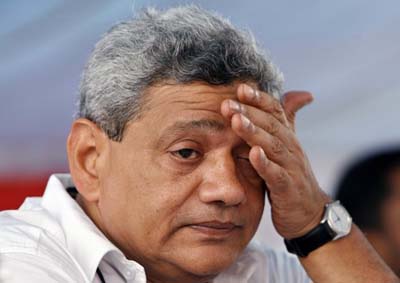
Claiming that the report of JPC was prepared without consultations with its members, Mr. Yechury, one of the 30 JPC members, strongly objected to the “failure” of the panel to call all material witnesses, including the Prime Minister, and relying solely on the written submissions of former Telecom Minister A. Raja.
Noting that even Mr. Raja was not provided an opportunity to provide oral evidence or face cross-examination by JPC, Mr. Yechury said in the 32-page note that the report has made “selective” use of the evidence.
He said several crucial questions, which were to have been replied by the Prime Minister and the Finance Minister, had remained unanswered as both were not called by JPC.
In a covering letter to his note, the CPI(M) leader said JPC had “failed” to adequately discharge the mandate given to it by Parliament.
In his dissent note, Mr. Yechury is believed to have written about the alleged roles played by the Prime Minister, the Finance Minister and the Minister of Communication and IT in the scam.
Apart from raising procedural irregularities in JPC’s functioning, he is believed to have raised issues relating to undervaluation of Universal Access Service (UAS) licenses allocated in 2006-08, presumptive losses on account of allocation of these licenses and spectrum in 2007-08, “failure” to appropriately deal with TRAI recommendations and to examine the issue of disinvestment in private telecom firms.






Comments
Add new comment